For many people, the idea of hitting the open road in an RV is a dream come true. But with so many different types of RVs on the market, it can be hard to decide which one is right for you.
When it comes to recreational vehicles, there are two main types: RVs and travel trailers. Both have pros and cons, so it can be tough to determine which one is right for you.
For example, do you want something big enough to live in full-time? Or do you just need something for weekend getaways?
We’ve created this handy guide to help you compare and contrast the differences between RVs and travel trailers. By understanding how they differ, you’ll be able to choose the perfect vehicle for your next road trip adventure.
Here are 7 differences between RVs and travel trailers to help make your decision easier.
1. Vehicle Dimensions
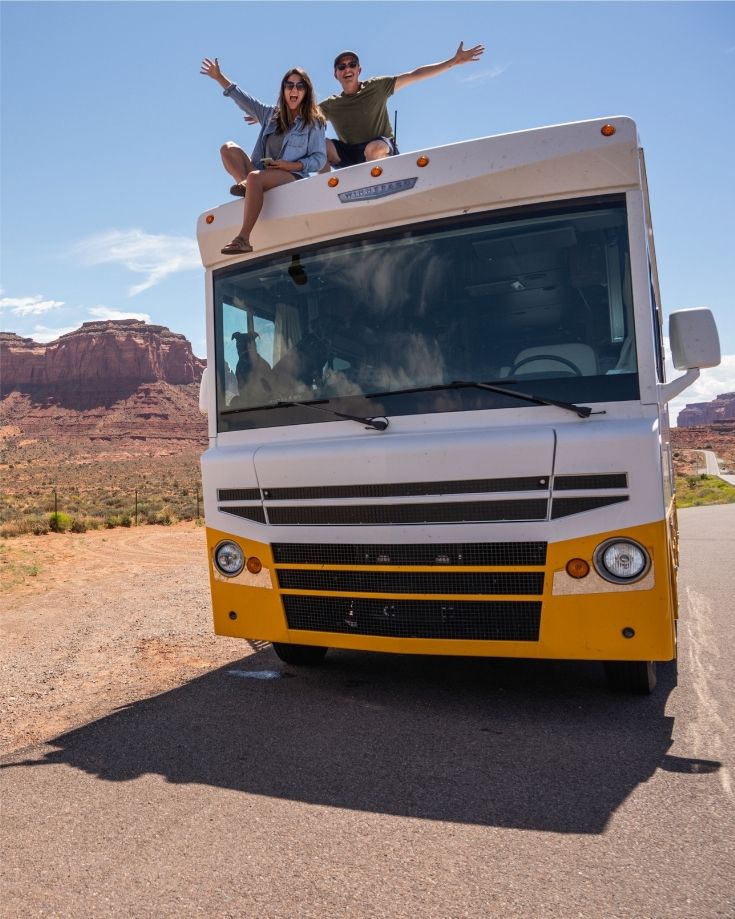
One of the most important distinctions between RVs and travel trailers is their size. RVs can be up to 45 feet long, while travel trailers are typically limited to around 35 feet. RVs and travel trailers are available in widths of around 8 feet to 8 feet 6″.
The main thing to consider is how much space the vehicle needs on the road, parking, and campgrounds.
How much space an RV needs on a road or parking lot is clear. Some models may need extra space for their slide outs on a campground, but otherwise, the length, width, and height are fixed.
That’s not the same for travel trailers because you’ll need to take your towing vehicle into account. When comparing travel trailers and RVs, travel trailers are almost always longer than an RV with a similar living space size.
2. Costs
When comparing the cost of RVs and travel trailers, there are a few aspects to consider.
Higher Upfront Costs For RVs (sometimes)
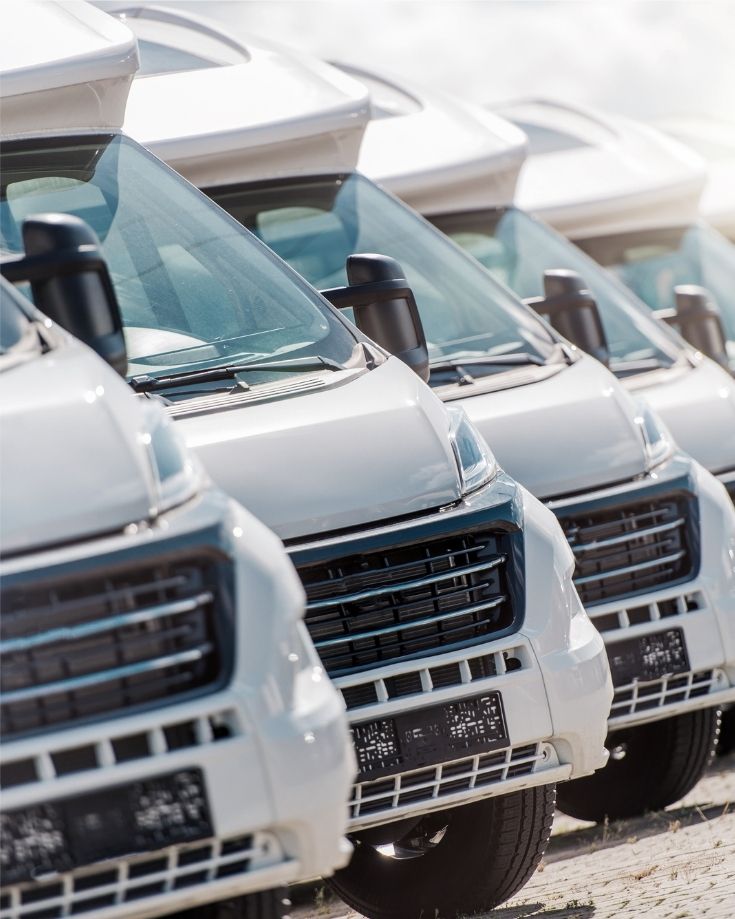
The cost of an RV or travel trailer can vary greatly depending on the size, features, and brand. But in general, RVs are more expensive than travel trailers.
The main reason for this is that campers with engines are far more expensive than those without engines. But, of course, if you already have a towing vehicle, a travel trailer will be a more affordable option.
However, if you need to buy a suitable towing vehicle, that could push the upfront costs higher than an equivalent motorhome.
Higher Campground Fees for Travel Trailers
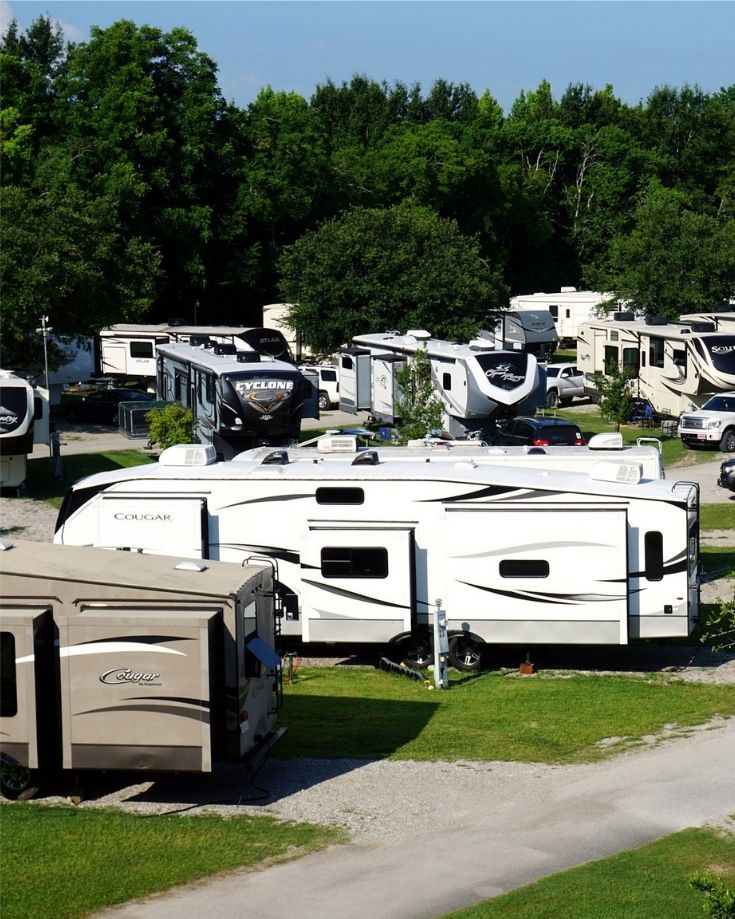
When it comes to the cost of travel, campground fees are a major factor. Most campgrounds charge by the night based on the size of the site. So if your camper setup needs more space, that may lead to higher campground fees.
Travel trailers are generally longer when attached to their towing vehicle than RVs. For those campgrounds that charge by the size of the site, you may pay more for your trailer than you would for a similar sized RV.
Higher Insurance Costs for RVs
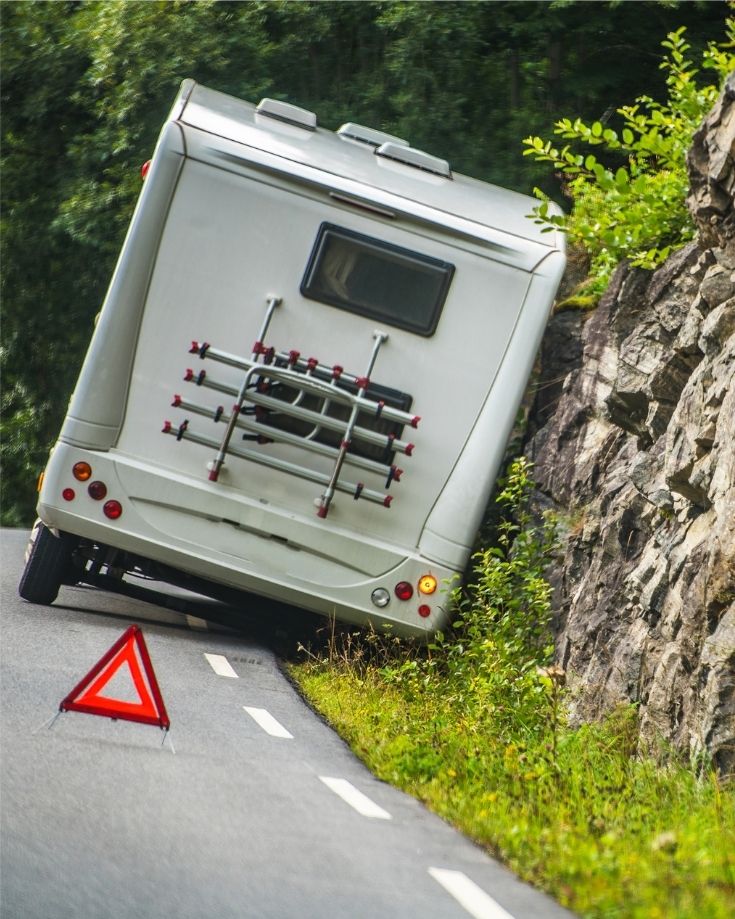
When you’re driving around in a big, expensive RV, you want to make sure that it’s fully insured in case something happens. But the cost of RV insurance can be pretty high, especially if you have a luxury model.
On the other hand, travel trailers are much cheaper to insure, even the luxury models. So if you’re on a tight budget, a travel trailer may be a better option for you.
Of course, the insurance cost will vary depending on your individual needs and the type of vehicle you choose. But it’s an important consideration when deciding which type of recreational vehicle is right for you.
Higher Fuel Costs for Large RVs

Fuel costs are another important consideration when choosing between an RV and a travel trailer.
The large Class A RVs are thirsty beasts. A comparable size trailer or 5th wheel is heavy, and requires a suitably powerful towing rig. Its fuel efficiency will be vastly reduced when it’s towing, but even so, it probably won’t be as bad as an RVs fuel efficiency.
Add to that, once you’ve unhitched the trailer, you can enjoy the lower consumption of your truck when driving around.
Class B or Class C motorhomes are generally the most fuel-efficient options. For a more accurate assessment, you should compare the fuel efficiency of the exact models your’re considering.
Higher Maintenance Costs for RVs (Arguably)
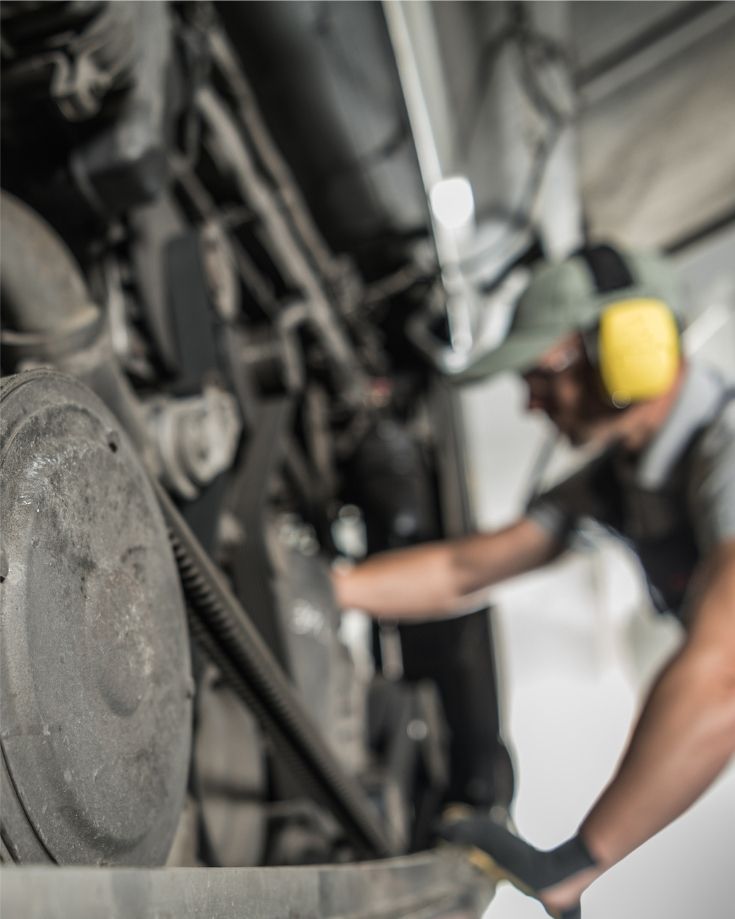
Because an RV has an engine as well as the camper’s living quarters, the maintenance costs for it will be higher. But, in reality, that’s not a fair comparison because, with a travel trailer, you’ll still incur maintenance costs for your towing vehicle.
Your towing vehicle may have lower costs, but that’s not guaranteed either.
3. Maneuverability
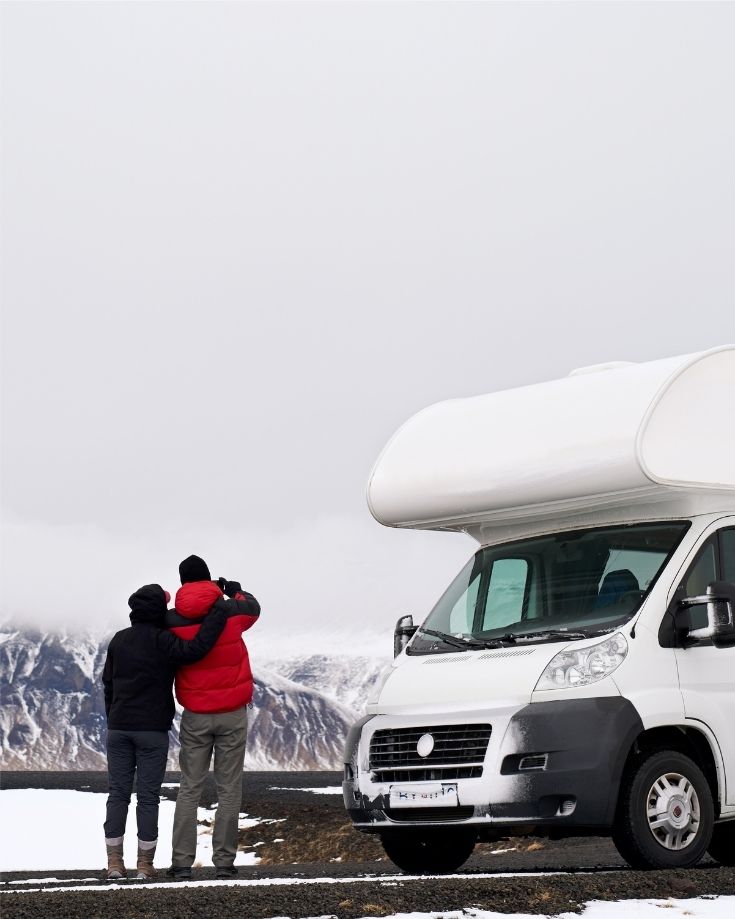
Manoeuvrability is important to people choosing between an RV and a travel trailer. It affects how easily they can park the vehicle and where they can drive it.
RVs, especially large A class motorhomes, are pretty cumbersome, need a lot of space to manoeuvre, and are not as easy to turn as a travel trailer.
On the other hand, manoeuvring a travel trailer takes some practice. Once you have the hang of it, positioning your rig exactly where you want it becomes a breeze.
If you’re looking for a large vehicle and enjoy boondocking and driving off-road, you’re probably better off with a travel trailer. They perform much better off sealed roads. Some trailers are even designed specifically for off-road adventures.
4. Driving Comfort
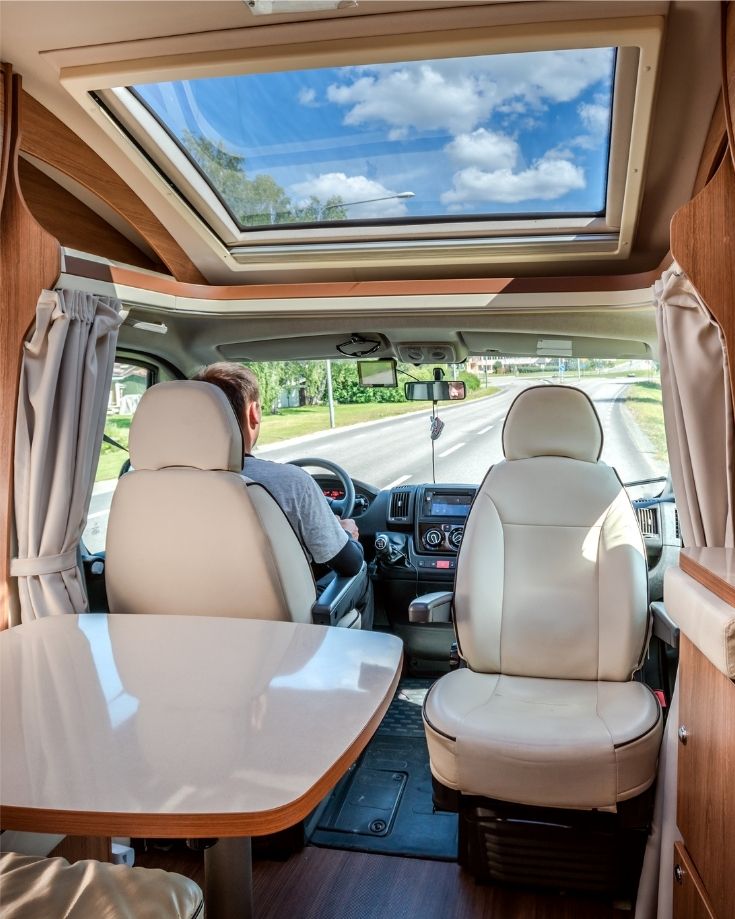
When it comes to driving comfort, RVs have the edge. They’re designed for long road trips and provide all the amenities you need for a comfortable journey. Unlike travel trailers, the RV’s driving cab is usually integrated into the living quarters, so there’s no need to dash from the driving seat in lousy weather.
In a travel trailer, the drivers’ comfort, and that of any passengers, is limited to the towing vehicle. So if you need anything for the journey, like snacks or entertainment for the kids, you’d best bring it into the car before you set off.
Also, travel trailers need to be driven with great care. Trailer sway could cause a dreadful accident, so it is critical to learn how to avoid it.
5. Living Space
One of the most significant differences between RVs and travel trailers is the living space each provides.
Class B and Class C motorhomes are relatively compact, so if you’re looking for something with a lot of space, you need to consider a Class A or a 5th wheel trailer.
These larger campers often have several slide outs, adding significant internal space.
6. Days Out
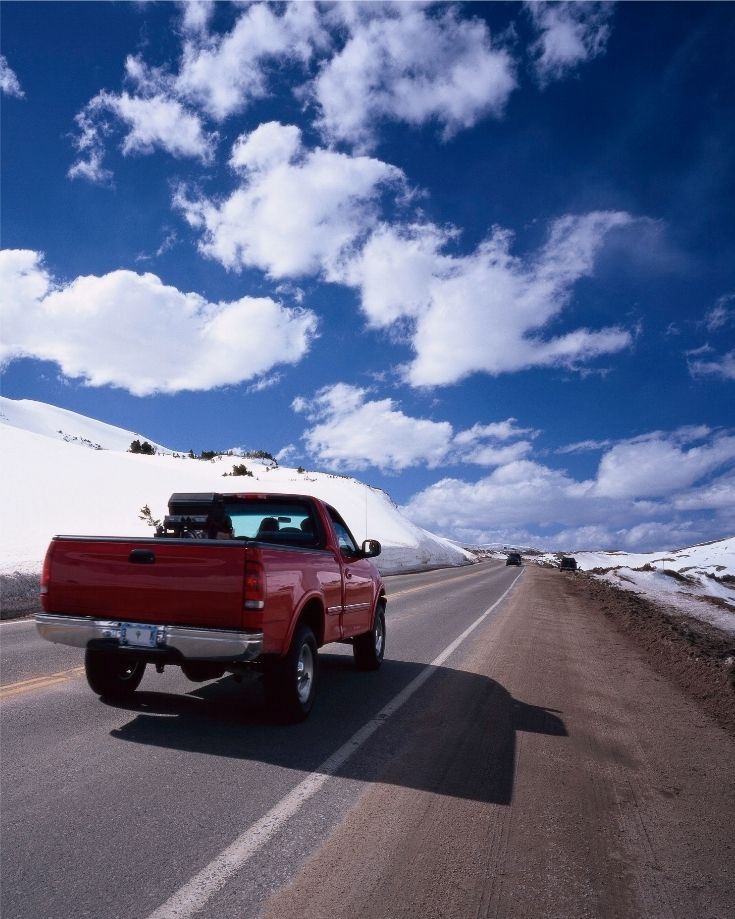
Travel Trailers are easier to go out on day trips than RVs. With a trailer, you can park at your site or in a campground and leave the trailer in situ for your entire stay.
You take your towing vehicle without its load when you explore the area. Now you’re driving a regular car or pickup truck and don’t have the hassle of driving a massive vehicle around.
In an RV, not only is driving around all day in a large vehicle a pain, but parking is a nightmare in many places too. Plus, you’ll have to unhook all the campground amenities each time you go out and return.
7. Setting Up Camp

When you arrive at your chosen campground or boondocking site.
Setting up an RV is straightforward. Park it level, so you don’t roll out of bed, use wheel chocks for safety and hook up to any amenities you want, like electricity and water.
Unfortunately, setting up a trailer is a bit more involved. You’ll need to:
- level the trailer side to side,
- unhitch it from the car,
- level the trailer from front to back,
- drop the stabilizing jacks,
- position your wheel chocks,
- and hook up to amenities.
While it is a more time-consuming process, if you’re setting up a travel trailer to stay for a few days or weeks, you’ll only need to do it once.
8. Transporting Your Family
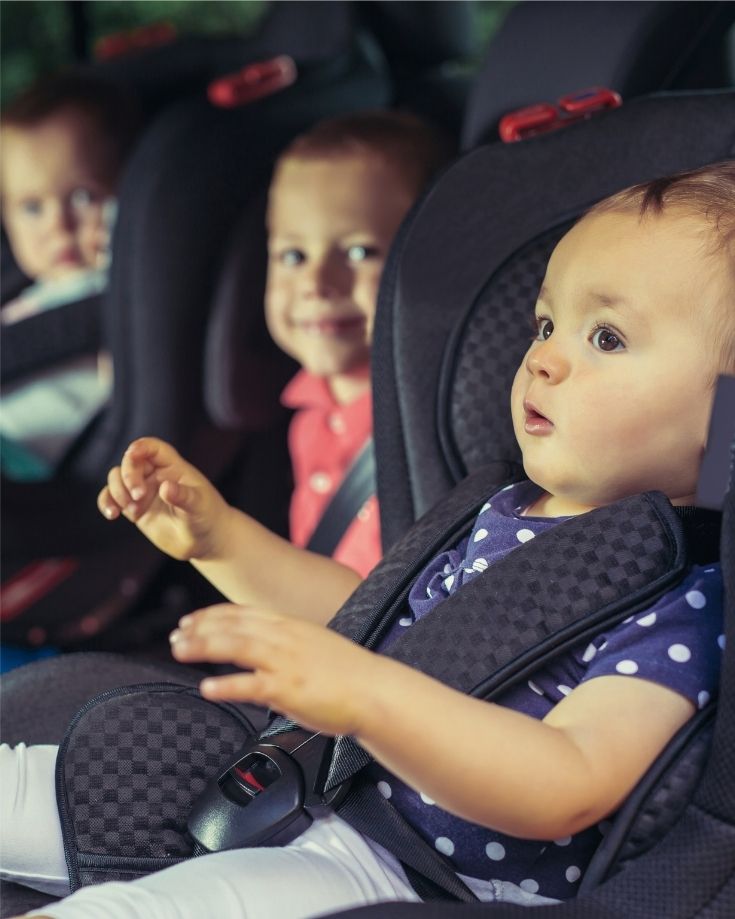
RVs provide superb living accommodation for families, and depending on the model, they can safely carry multiple passengers.
However, the passenger seats in the back tend to be at a table. That’s an excellent solution for the kids who can be kept occupied with activities at the table. However, in the unfortunate event of an accident, that table may not be the safest thing to have around.
Moreover, have you ever seen an RV or travel trailer after an accident? The chances are it was mostly left as debris across the road. They’re pretty flimsy when subjected to the forces of a collision.
If you’re unlucky enough to be in an accident, in my opinion, anyone traveling in the tow vehicle is generally better protected in the towing vehicle than in the motorhome.
Safety Tips For RV Travel
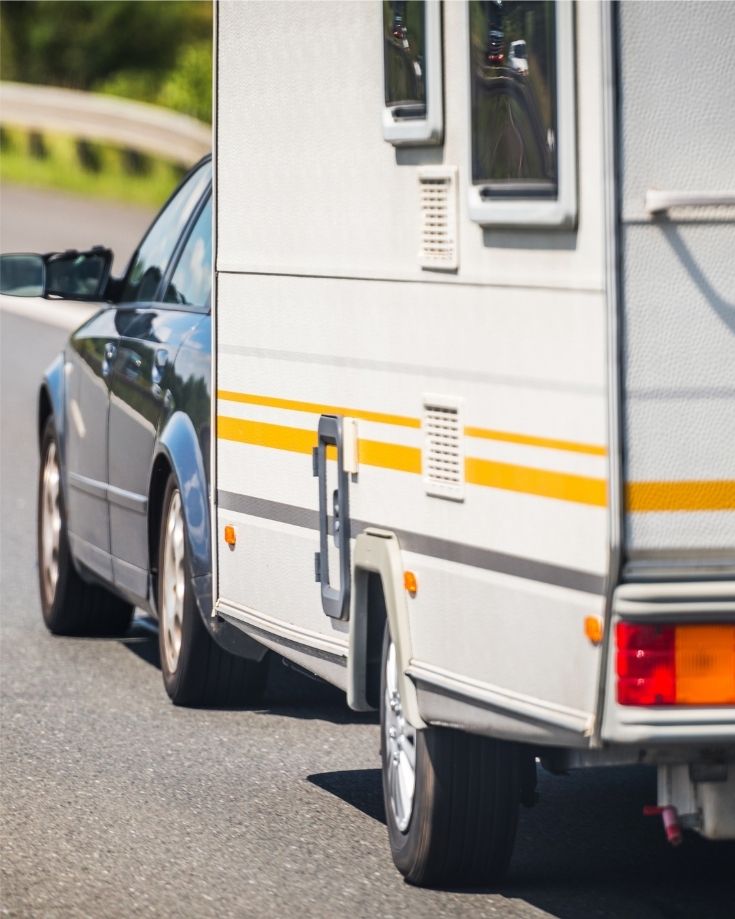
RVs and travel trailers can be a great way to travel with your family, but they’re not always safe. Here are some things you need to look out for when driving an RV:
- Always check the tires and brakes before you hit the road, especially if you’ve just taken it out of winter storage.
- Never overload the trailer.
- Stay aware of your surroundings and always check your blind spots.
- Make sure you’re familiar with the size and weight of your RV before driving.
- Don’t drive in bad weather conditions if you can help it.
- Beware of low overhangs that could damage your RV.
- Always use caution when pulling into or out of a campground.
If you follow these tips, you’ll be more likely to have a safe and enjoyable trip in your RV or travel trailer.
Is It Better To Have A Travel Trailer Or An RV?
There are a few things to consider when making this decision. First, what kind of trips do you want to take?
If you’re looking to explore the country and see different sights, a travel trailer might be a good option. They’re smaller and more lightweight than RVs, so they’re easier to tow behind your vehicle. They also tend to be a little less expensive than RVs.
However, if you want to spend extended periods on the road or go camping in different locations, an RV might be a better choice.
So, it really depends on what kind of traveling you plan on and your own specific needs.
Is It Easier To Drive A Motorhome Or Pull A Travel Trailer?
There is no one definitive answer to this question – it depends on a variety of factors, including the size and weight of your motorhome or travel trailer, the length of your vehicle tow hitch, and the type of terrain you’ll be driving on.
That said, most people find it easier to drive a motorhome since it’s essentially its self-contained unit. A travel trailer can be more challenging to handle, especially if it’s large and heavy since you’re relying on another vehicle to pull it.
Wrapping Up
Now that you know the differences between RVs and travel trailers, you can make an informed decision about which one is right for you. Remember that these are just generalizations – there are always exceptions to every rule.
So take your time, do your research, and ask lots of questions before deciding. Better still, renting a trailer or RV for a few days will help confirm if you’re making the right call. And most importantly, have fun on your next road trip adventure!
Angela Devaney

Angela Devaney, a former IT project management professional, embarked on an adventurous journey of full-time travel, which included touring West Africa in a converted overland truck and converting an ex-military 4×4 Sprinter van into a camper for a five-year South American expedition. She now utilizes her hands-on experience to create practical RV living and van life advice as a full-time digital media producer, reaching over a million users annually through her YouTube channel, blog, and newsletter. Angela also lends her expertise as the editor-in-chief of the Campervan Electrics Handbook.

